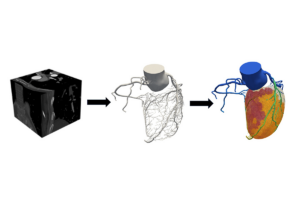AUSTIN, Texas — Americans have donated billions of dollars since the start of the pandemic to nonprofits responding to the crisis. Public charities have stepped up efforts to help people and businesses hit hard by the virus and the economic downturn.
But these donations may not be contributing as much to nonprofits’ primary missions as we think, according to a new study by Eric Chan, assistant professor of accounting in the McCombs School of Business at The University of Texas at Austin, and Xinyu Zhang of Cornell University.
Prior research has shown pervasive financial misreporting by nonprofits to the IRS. In particular, many nonprofit managers inflate the program ratio—the proportion of an organization’s mission-related expenses to its total expenses—used by charity rating agencies to evaluate a nonprofit’s performance.
The authors wanted to know why managers overstate their program ratio (the difference between the funds a nonprofit devotes to its direct mission-related work and the organization’s total expenses) and how regulators can deter such misreporting.
“When we donate, we want to make sure the money is going to the right places, not just for administrative purposes and marketing, but to the beneficiaries,” Chan said. “The program ratio really captures that idea.”
The study found that how much money managers make is a key factor in not only why they inflate the numbers, but how often.
“Lower-paying nonprofits attract more mission-focused managers who misreport finances to advance their nonprofit’s mission. They justify such behavior by their personal sacrifice of wealth,” Chan said. “Higher-paying nonprofits attract a majority of self-focused managers who justify their misreporting based on the impact on their personal outcomes.”
Pay at nonprofits is on the rise, drawing a wider mix of managers driven by different motivators. To examine these motivators, Chan and Zhang ran a two-part experiment on an online labor market platform.
Participants chose one of two hypothetical manager jobs: one at a nonprofit and the other an alternative job where participants did not raise money for charity. Then, each participant playing the role of a nonprofit manager designated a real-life charity that other participants, playing the role of donors, could give to.
Participants were randomly assigned to select between a nonprofit job that either paid more or less than the pay at the alternative job.
Post-experiment questions revealed that people who chose the lower-paying nonprofit job on average valued and cared about the mission significantly more than those who chose the higher-paid nonprofit job. These higher-paid managers were in one of two camps. A minority also cared about the nonprofit’s mission. But a larger group were not mission-driven and took the nonprofit job only because it paid more than the alternative job.
The researchers next studied misreporting. Managers were privately assigned program ratios, and then they either honestly reported or inflated and misreported numbers to study participants in the role of donors. Donors, meanwhile, could either select a nonprofit based on the reported program ratio or audit these numbers so that the nonprofit with the higher actual program ratio received their donations.
The study found that sacrificing personal wealth appears to be a key driver in misreporting by lower-paid managers who are much more likely to inflate the program ratio than equally mission-driven managers in the higher-paid group.
“It gives you the moral license to do something unethical later on,” Chan said. “These lower-paid, mission-focused managers believe they have made a sacrifice and can justify inflating the program ratio to benefit the organization.”
Consistent with their theory on why managers misreport, the researchers found that penalizing the manager is a more effective deterrent to misreporting in higher-paying nonprofits, while penalizing the organization is more effective in lower-paying ones.
“Understanding and Deterring Misreporting in Nonprofits: The Joint Effects of Pay Level and Penalty Type” is forthcoming, online in advance in The Accounting Review.
For more information about this research, read the McCombs Big Ideas feature story.




